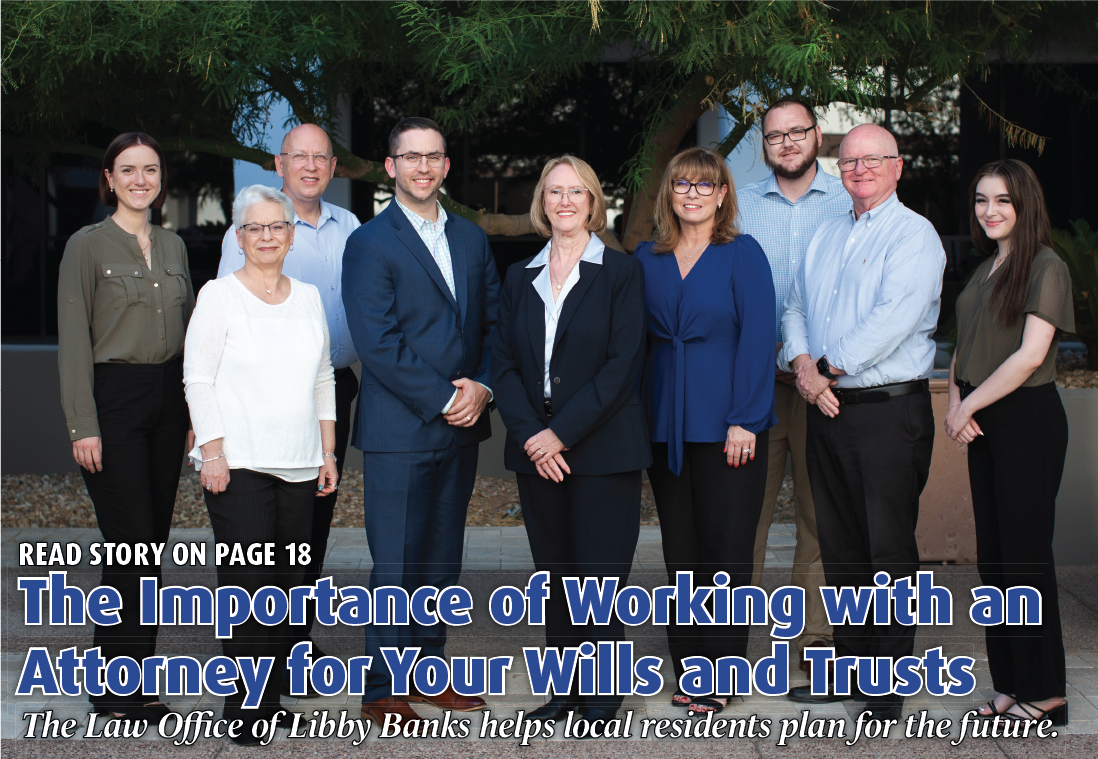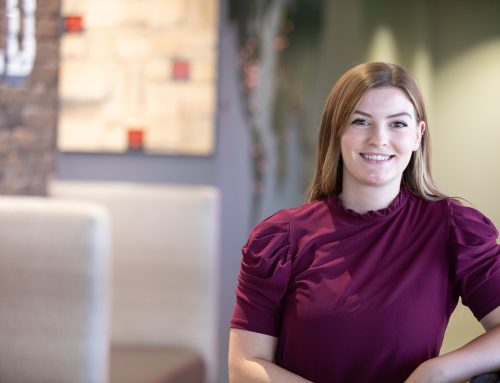Attorney Libby Banks came to estate planning by way of working with clients on probate court proceedings. This unique perspective resulted in a passion for helping families with estate plans that protect them.
“Fifteen years ago, I began working on a few big estate fights – fights over money when there is no will or no valid estate plan,” Libby explains. “I saw families fall apart when the fight escalated, saw the hard-earned money of the deceased being eaten up by court proceedings and lawyers’ fees. Family is very important to me, and seeing families fall apart in these situations motivated me to begin working on the preventative side, looking to avoid those fights. For the past 11 years, I’ve focused exclusively on estate planning, probate, and trust administration.”
Libby says that estate planning is needed at any age or life situation. “You need to consider your current financial and life situation as you plan,” she says.
Estate planning is about selecting someone to make sure your estate is managed properly, first for you if you are not able to manage your own affairs, and then to be sure your assets are distributed the way you wish when you are gone. The goal is to create a plan and keep it updated so it grows with you. Your plan when you are married with no children differs from the plan when you have small children and grows into another plan when your children now have children of their own. A sound estate plan helps you to protect your loved ones and makes sure that your wishes are respected.
What are some downsides to failing to do a plan? Many, Libby shares, and with consequences you may be unaware of or are unforeseen.
“The state of Arizona has a plan for you – it’s written in the law,” Libby reveals. “Often, it is not what you would want to have happen.”
She says a classic example is the blended family, where husband and wife have come together in a second marriage and have children from their previous relationships. State law says that assets held by a married person in his or her own name are divided between their spouse and their children from a previous marriage when they pass. “If the house is just in the husband’s name, on passing, the wife only owns half the home. Her husband’s children own the other half. If that isn’t what they want, they need to be sure that their plan avoids this.” While holding assets in joint tenancy is one solution, Libby admits, it doesn’t solve all the issues. “If the house is held jointly and the husband passes away, the wife inherits it by operation of law. But if she doesn’t have a plan in place, who inherits when she’s gone? Her children. Her husband’s children are left out completely. A good plan could make sure that the surviving spouse has use of the assets for his or her lifetime, and that the assets go to both of the couple’s children when the survivor passes away.”
Libby mentions that she has built a great team to assist clients with wills, trusts, and powers of attorney, including Travis Meyers, a lawyer who joined the team two years ago. “The team is also ready to help if your loved one passes away without a proper plan. If your loved one left no will, or if they only drafted a will, the family must file a probate court proceeding, and the team can do that for you and guide you through the steps to wrap up the estate.”
“We are happy to assist with probate matters, as long as there is no contest or fighting among the family members,” says Travis, Libby’s attorney in charge of probate and trust administration. “But your family will have a much easier and smoother time wrapping up your estate if you have a trust.” The team is also available to assist with the administration of a well-planned trust upon a loved one’s passing.
Both Libby and Travis caution that do-it-yourself estate planning may be unwise. Like all important, vital tasks, it’s best to leave something this crucial to a professional.
“As estate planning attorneys, we know what to recommend for you based on your situation, your beneficiaries, your assets, and your goals and dreams,” she continues. “You may not know all the ways you can benefit your heirs or the problems you may create with a poorly drafted will or trust. Putting the right plan in place, using an experienced attorney, will save your family heartache and expense.”
“If you don’t do the job right and you don’t know you’ve made a mistake, it may well be too late before you – or more likely, your family – finds out and then they may end up in court,” she explains.
Starting an estate plan with the Law Office of Libby Banks is easy. You can book a free-of-charge consultation with Libby or Travis in person or virtually. Estate planning prices vary based on the situation and the free consultation involves a free estimate on how much a plan would cost, Libby adds.
To learn more, or book a free consultation, call 602-375-6752, e-mail [email protected], or visit www.libbybanks.com.
This content is sponsored by the Law Office of Libby Banks.






